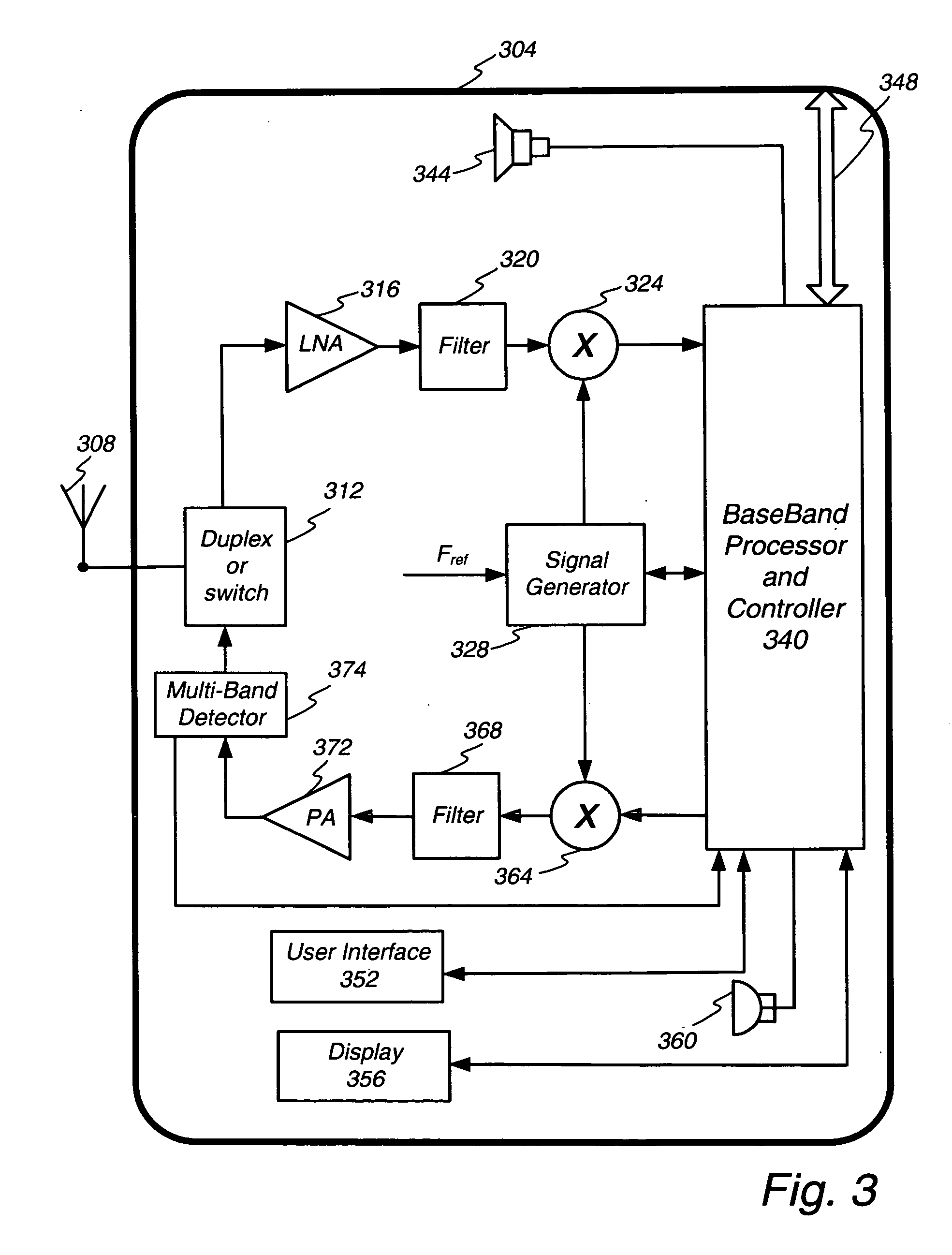Temperature compensation of collector-voltage control RF amplifiers
a technology of voltage control and amplifier, applied in the field of amplifier compensation, can solve the problems of high undesirable and inconvenient transmission of signals outside of the frequency band and power level assigned, violation of communication standards and associated governmental regulations, and inability to receive and decode signals that do not comply with the standard or desired transmit parameters
- Summary
- Abstract
- Description
- Claims
- Application Information
AI Technical Summary
Benefits of technology
Problems solved by technology
Method used
Image
Examples
Embodiment Construction
[0028]To overcome the drawbacks of the prior art, a temperature compensated amplifier is disclosed. In the temperature compensated system described herein the voltage Vce(sat) remains fixed, although dependent on temperature, while the voltage Vcc is compensated. FIG. 2 illustrates an example plot of such an arrangement. As shown in FIG. 2, a vertical axis 204 represents RF voltage while a horizontal axis 208 represents temperature. A (2×Vcc) plot 212 is shown as representing the upper range of the RF voltage swing while a Vce(sat) plot 216 represents the lower boundary of the RF voltage swing. In this plot of FIG. 2, as compared to FIG. 1, it can be seen that (2×Vcc) plot 212 has been compensated for temperature such that as temperature increases, so to does Vcc. In this manner, the output power or voltage swing, if so desired, may be maintained constant and not be limited by the upper boundary of (2×Vcc).
[0029]Before discussing the details of the various embodiments of the inventi...
PUM
 Login to View More
Login to View More Abstract
Description
Claims
Application Information
 Login to View More
Login to View More - R&D
- Intellectual Property
- Life Sciences
- Materials
- Tech Scout
- Unparalleled Data Quality
- Higher Quality Content
- 60% Fewer Hallucinations
Browse by: Latest US Patents, China's latest patents, Technical Efficacy Thesaurus, Application Domain, Technology Topic, Popular Technical Reports.
© 2025 PatSnap. All rights reserved.Legal|Privacy policy|Modern Slavery Act Transparency Statement|Sitemap|About US| Contact US: help@patsnap.com



